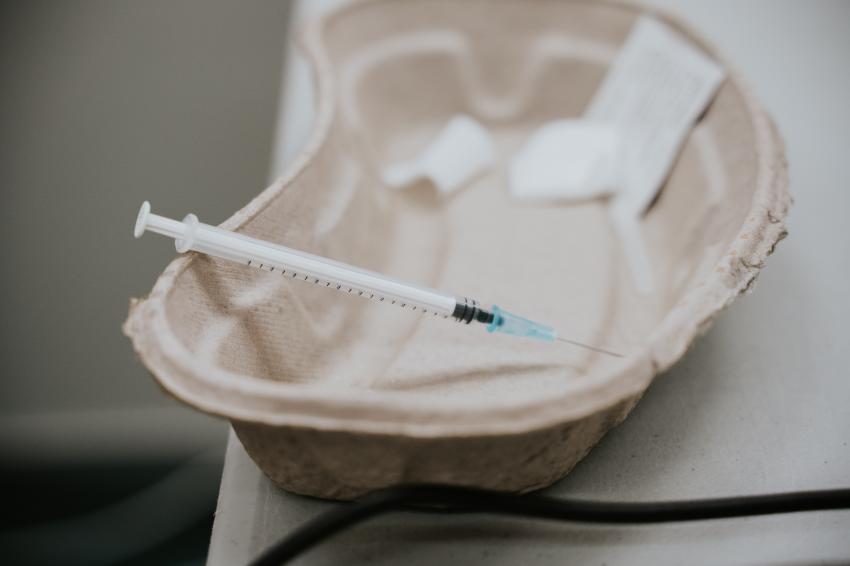AstraZeneca Sees 79% Efficacy in US Vaccine Trial
This interim safety and efficacy analysis was based on 32,449 volunteers from Peru and Chile accruing 141 symptomatic cases of Covid-19 and had a 2:1 randomization of vaccine to placebo. It used a four-week interval for the two doses rather than the 12 weeks being tested in the UK.
Confusion about the concentration of the doses given and the intervals between administering them created by earlier US tests was one of the reasons the US Food and Drug Administration (FDA) has waited for completion of an adjusted trial before granting an Emergency Use Application (EUA). In the first round, vaccine efficacy in participants who received two full doses was tallied at 62%. But in an another run, with volunteers accidentally receiving only half-dose, efficacy was seen as 90%.
AstraZeneca said it plans to apply to the FDA for and EUA in the first half of April. After applications are received, the US health watchdog generally submits trial data to an independent review panel before its own experts and career officials draw their own conclusions.
If the FDA grants the authorization, Ruud Dobber, the company’s executive vice president biopharmaceuticals, said AstraZeneca could roll out 30 million doses to the US market quickly, followed by another 15-20 million per month after that. As product designated for the US market will be manufactured there, the executive said the country will not be affected by supply shortfalls seen in other countries.
Some doses already made by CMDOs in Ohio and Maryland are being stockpiled awaiting the FDA’s green light. Mexico has asked for the transfer of some of the volume until the FDA has given the go-ahead. Last week, the Biden administration appeared close to agreeing.
UK and EU still fighting over supply of doses
Meanwhile, the exchange of verbal shots across the English Channel continues, as the UK potentially faces a vaccine shortage for the first time, from AstraZeneca in Europe as well as India. The government of prime minister Boris Johnson wants to draw supplies from the Dutch plant of CDMO Halix, which the drugmaker has blamed for part of its shortfall.
The EU is considering blocking the transfer of doses from the Leiden facility, leveraging its new export authorization mechanism. As soon as the European Medicines Agency (EMA) gives its regulatory blessing, which is expected soon, it said the plant’s output – of unknown volume – will be added to its own stockpile. AstraZeneca, however, said it is “well on track” to get UK regulatory approval by the end of March or the beginning of April so that doses can be shipped across the channel.
The company said the site would play a “relatively small role” in delivering vaccine doses to the EU, which have been repeatedly delayed. It said the 27-member bloc is being supplied from a plant in Belgium and another site in the US. Up to now, there has been no mention of supplying Europe from the US.
According to the newspaper Financial Times, Johnson has sent an emissary to Brussels to end the standoff as a surge in Covid-19 cases in the EU would end up hitting the UK.
European teams may have remedy for thrombosis woes
In the meantime, German and Norwegian medical research teams working separately think they may have some insight into the incidences of thromboses which have plagued the rollout of the AstraZenecas vaccine in several European countries. Researchers at the Greifswald teaching hospital in northern Germany, working with the Paul Ehrlich Institute and doctors in Austria, said they may have discovered the cause of the venous sinus thrombosis (CVST) events that have killed several people receiving the shot in Germany, Austria, Denmark and Norway.
The affected individuals were found to be deficient in platelets, which can affect blood clotting, a phenomenon reportedly seen with other vaccines in the past. If this discovery proves accurate, immunological treatment could be offered to those who show signs of similar clotting, the researchers said. Teams in Norway said they had found “special antibodies” in patients suffering blood clots.
Following a statement by the EMA on Mar. 20 that the AstraZeneca shot is “safe and effective,” most of the EU countries that had suspended vaccinations with it had begun administering the shot again, except for Norway and Denmark, where officials said further research was needed.
AstraZeneca said its US study found no increased risk of thrombosis similar to those seen in Europe among the trial participants. No cases were initially reported in the UK; however, after the EU incidents emerged, broadcaster BBC reported there had been isolated cases.
Author: Dede Williams, Freelance Journalist




